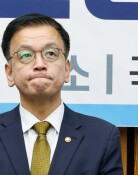Leaders in their 40s in American political history
Leaders in their 40s in American political history
Posted October. 16, 2019 07:31,
Updated October. 16, 2019 07:31
John F. Kennedy assumed the presidency in 1961 at the age of 44. Though assassinated in 1963, he is still remembered as a young president who was the most beloved by American people. The young politician pursued an ambitious domestic policy called “New Frontier.”
The Cold War followed World War II, and the American society was filled with anxiety about the future. Riots and insurgences took place in all corners of the country. Then Kennedy, in his forties, decided to take up on a new challenge. He established the Peace Corps and sent them to developing countries so that the country’s youth could become pioneers feeling proud and patriotic.
Bill Clinton was another U.S. president who took the office in 1993 while he was in his forties. At the age of 47, Clinton ran a presidential campaign focusing on his image as a young politician who will provide a way out of the economic crisis. In 1992, the United States was going through grave economic difficulties with its fiscal deficit growing three times the amount recorded in 1980. President George Bush was torn between the Democratic Party’s proposal for a tax increase and the Republican Party’s demand for increased government spending. In the meantime, businesses went on to lay off a large number of employees, resulting in a sharp rise in the unemployment rate. The Clinton’s campaign responded by using a now famous phrase “It’s the economy, stupid.” Voters expected that Clinton, who was younger than Bush and had experience as governor, would better resolve the economic issues than his opponent.
Barack Obama became the president of the United States in 2009 at the age of 49. While Republican candidate John McCain, who was 73 years old at that time, relied on conventional media such as newspapers and broadcasting for his campaign, Obama talked about his pledges via Facebook and Twitter, earning a nickname called the “social president.” The Obama administration’s catch phrase “Yes, we can” is considered to have given hopes to people who were fatigued with the protracted Iraq War and the global financial crisis.
Ji-Sun Choi aurinko@donga.com







